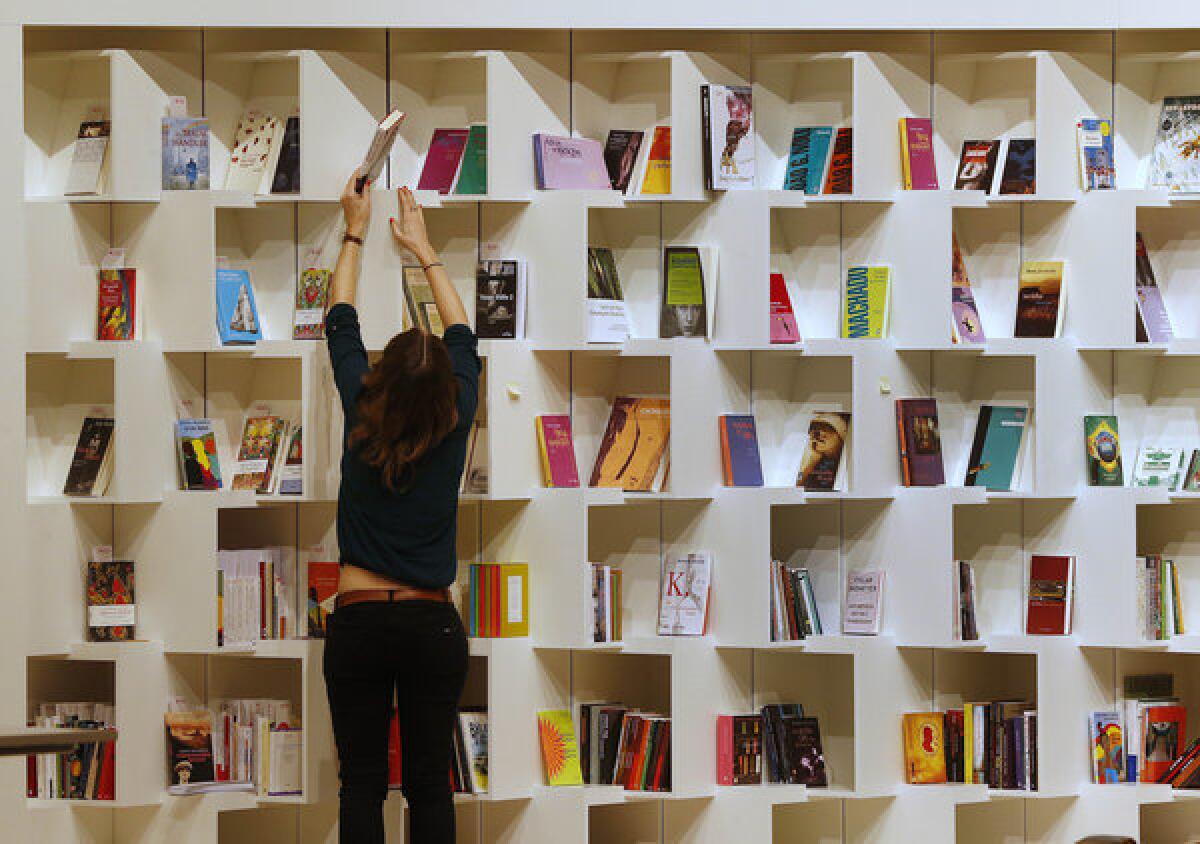American adults have low (and declining) reading proficiency

- Share via
The reading skills of American adults are significantly lower than those of adults in most other developed countries, according to a new international survey. What’s more, over the last two decades Americans’ reading proficiency has declined across most age groups, and has only improved significantly for 65-year-olds.
The study of 160,000 people by the Organization for Economic Cooperation and Development, which is composed of two dozen developed nations, found that U.S. adults had reading levels that were below average, and lagged far behind those of Japan (which scored at the top), several Scandinavian countries, Australia and Korea. Test takers in Spain, Italy, Ireland and several other countries hardest hit by the Great Recession scored lower than Americans did.
Americans also scored lower than average in math and technological problem solving.
“It’s long been known that America’s school kids haven’t measured well compared with international peers,” the Associated Press wrote in a survey of the study. “Now, there’s a new twist: Adults don’t either.” And it appears students who leave high school without certain basic skills are not learning those skills later in adult education or job training programs.
Dolores Perin, professor of psychology and education at Teachers College, Columbia University, told the AP that the report provides a “good basis for an argument there should be more resources to support adults with low literacy.”
Perusing deeper into the study (it’s available for download), one finds a table in which the results of two literacy tests, given in 1994 and 2012 are compared. People in their thirties and forties in 2012 scored significantly lower than people in their same age group in 1994. The drop among 30-year-olds was less dramatic.
ALSO:
7 ways Leo Tolstoy is like Harvey Weinstein
Who will win the 2013 Nobel Literature prize?
Andrew Wylie criticizes Amazon’s ‘megalomania’
hector.tobar@latimes.com
More to Read
Sign up for our Book Club newsletter
Get the latest news, events and more from the Los Angeles Times Book Club, and help us get L.A. reading and talking.
You may occasionally receive promotional content from the Los Angeles Times.











